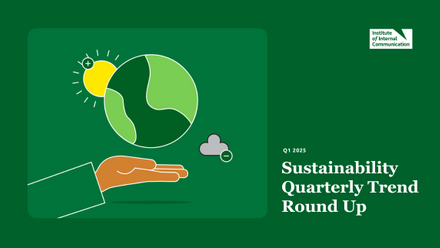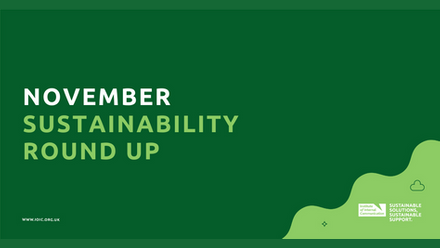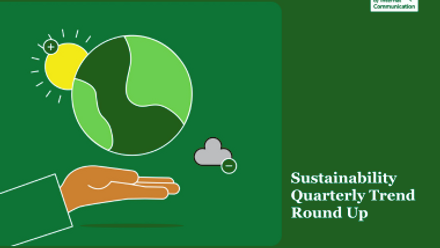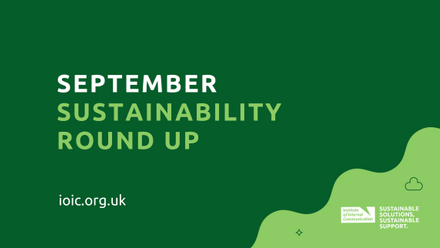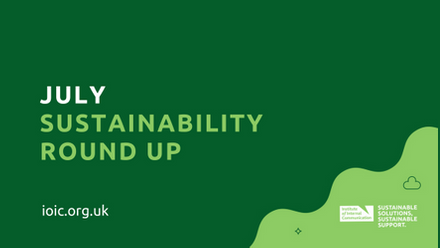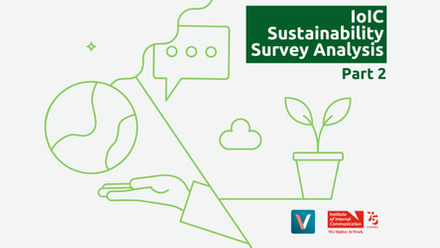Community sustainability
California has always been a bell-weather for the US and the rest of the world, so it’s perhaps no surprise to read that there are some innovative community-based initiatives linking environmental justice and economic empowerment emanating from the golden state.
The Biden-Harris Administration has just announced over $100 million (ca. £76 million) in Environmental Justice Community Change Grants for seven California communities, which are part of a larger $2 billion (£1.52 billion) national programme. This investment aims to address long-standing environmental and climate justice challenges in disadvantaged areas. The grants will fund projects to reduce pollution, increase climate resilience and build community capacity.
The programme emphasises the importance of community-driven solutions, with funding going to local partnerships for projects addressing air quality, clean transportation, green spaces and community engagement.
It aligns with Joe Biden's Justice40 Initiative, which aims to direct 40% of certain federal investments to disadvantaged communities. In addition, a cornerstone of ‘Bidenomics’ is the expansion of green initiatives, as part of his vision to grow the US economy from the middle out and the bottom up, rather than the top down.
Contrast this approach with the Republican Party’s presidential candidate who’s a climate change denier, pulled the U.S. out of the Paris Agreement on climate change, and actively courts big oil.
Forward-thinking investments like these that empower communities to tackle environmental issues, create green jobs and improve quality of life in areas historically overburdened by pollution and underinvestment may well become a thing of the past if Trump is granted a second term.
A salient reminder that in the upcoming US presidential election, the stakes are high for the US – as well as the world beyond its borders – when it comes to addressing the climate emergency.
Organisational sustainability
As the climate reporting landscape grows more complex, organisations will need to acknowledge that getting this right is not just a financial imperative but a cultural one as well.
So this Raconteur article on how CFOs can make headway in their climate reporting inspired us to ponder the implications for us as internal communicators. After all, supporting our CFOs to do this effectively is set to be increasingly pivotal for fostering a company-wide culture that embraces and embeds sustainability.
By nurturing a culture that embraces sustainability, internal communicators can help mitigate risks associated with poor reporting, including regulatory penalties, loss of investment, as well as reputational damage. They can also highlight the positive impacts of strong sustainability practices on company performance and stakeholder trust.
Here are some other ways in which internal communicators could play a pivotal role in fomenting this change across our organisations:
- Translating complexity into clarity: help colleagues understand the intricacies of sustainability reporting and its impact on daily operations.
- Cultivating cross-departmental collaboration: facilitate teamwork among finance, operations and sustainability departments to ensure a holistic approach to climate reporting.
- Amplifying the CFO's message: ensure that sustainability initiatives are not confined to boardrooms but are communicated effectively throughout the organisation.
- Building a sustainability-conscious community: educate colleagues on how their individual actions contribute to the company's broader climate goals and reporting outcomes.
- Supporting change management: guide the organisation through the cultural shifts necessary to prioritise and entrench sustainability practices.
Embedding the critical role of internal communicators in supporting CFOs and nurturing a sustainability-focused culture will help organisations transform climate reporting from a behind-the-scenes financial exercise into a company-wide commitment to environmental stewardship and responsible business practices.
Economic sustainability
Despite being part of one of the more resource-intensive sectors, many major fashion companies are still at the beginning of the transition toward sustainability. In fact, almost a quarter of big fashion brands have no decarbonisation plan, a recent report has found.
That’s a pretty staggering number, and underlines how brands within the industry have been slow to view sustainable practices as an opportunity for paving the way to innovation, cost saving and enhanced productivity.
This is partly because fashion’s prioritisation of short-term profit is at odds with supply chain decarbonisation.
However, companies in other sectors are signalling an increasingly willingness to merge corporate social responsibility (CSR) and economics, to the degree that a new term is emerging to define this approach – ‘econogy’, a concept that combines the words ‘economy’ and ‘ecology’.
While requiring short-term investment, an econogy approach promises to allow fashion businesses to offer a whole new value proposition to consumers.
It’s possible that our own organisations are further along with their own ‘econogy’ journeys, of course, but the concept provides a cross-sector way forward that’s capable of embracing transformation and the whole ecosystem of organisations, economic sustainability, people, skills and technology. Learnings for us all...
Environmental sustainability
There’s some positive news in the air – quite literally. Because, for the first time, in the first half of 2024, wind and solar energy surpassed fossil fuels in generating 30% of the European Union's electricity. And with other renewables such as hydropower included, the proportion would be closer to 50%.
This shift led to a 17% decrease in power generation from coal, oil and gas compared to the previous year, resulting in a one-third reduction in sector emissions since 2022.
Despite a slight increase in electricity demand, EU power plants burned 24% less coal and 14% less gas. Thirteen member states, including Germany, Belgium, Hungary and the Netherlands, now generate more electricity from wind and solar than from fossil fuels.
Although substantial renewable energy targets must still be met to power a clean economy, experts view this development as significant, demonstrating that the EU's electricity transition is achievable with proper policy measures.
Although the UK is no longer part of the EU, from an internal communication perspective, we think it’s important to share climate ‘wins’ like this when/wherever they occur – especially given that, at times, they might seem a little thin on the ground. Morale-boosting news like this helps reinforce our organisations’ commitments to environmental goals and inspires further dedication to sustainable practices.
Personal sustainability
It’s probably something that isn’t on many of our radars, but experts are warning that excess sending of memes and ‘reply all’ emails can have consequences for the climate.
That means that tackling junk data is set to play an increasingly important role in addressing the climate emergency in the latter half of the 2020s.
Most data stored on cloud servers is known as ‘dark data’, which is used once and never accessed again. This includes shared memes, jokes and clips, which consume energy while sitting in datacentres. These facilities are hot, noisy and energy intensive.
By being mindful of our digital footprint and adapting our behaviour accordingly, we can make a significant difference in reducing the ongoing environmental impact of data storage and transmission.
To reduce the data burden, for instance, we can send fewer pointless emails. Each standard email generates about 4g of carbon. Other steps to reduce carbon footprints include avoiding the use of 'reply all' where it’s not really necessary, as well as recognising that emails and data production are not carbon-neutral.
It’s time we started questioning our digital habits within organisations and as individuals, in ways we’ve never really had to before. Because lots of cumulative small changes can make a big difference when executed as.
